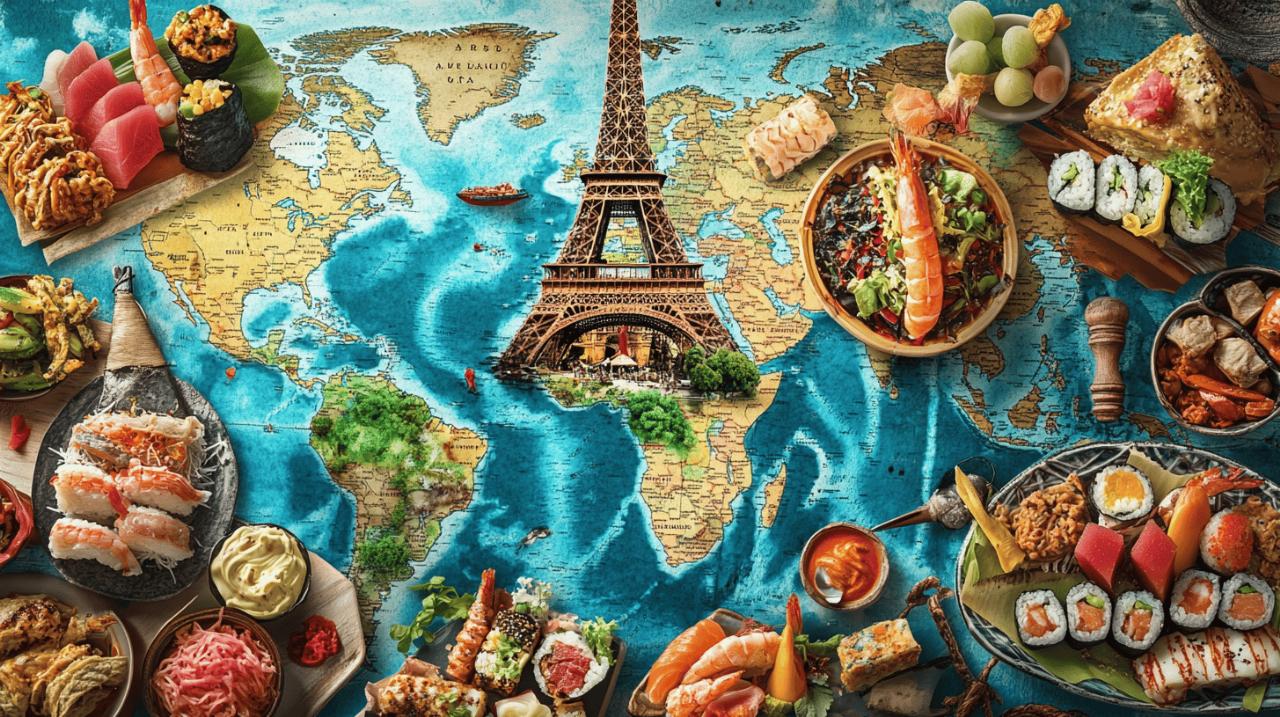Travel is not just about ticking destinations off a bucket list; it's about immersing yourself in the authentic essence of places around the world. When we venture beyond tourist brochures and dive into genuine cultural experiences, we discover the true heart of a destination. This exploration becomes even more meaningful when we connect with local communities and savour the distinctive flavours that define a region's identity.
Immersing yourself in true local culture
The most rewarding travel experiences often happen when we step away from the well-trodden path and engage with a destination on a deeper level. Travel platforms like Ameropa understand this philosophy, offering insights into genuine cultural encounters across the globe. Authentic travel means observing daily life unfold in neighbourhood markets, conversing with locals in their native tongue, and participating in everyday activities that reveal the true character of a place.
Connecting with residents beyond tourist hotspots
Solo travellers particularly benefit from building connections with local residents. These interactions can transform an ordinary trip into an extraordinary journey of cultural discovery. Rather than simply visiting landmarks, consider staying in family-run guesthouses where hosts might share stories over breakfast or recommend hidden gems not found in guidebooks. In places like Forlimpopoli, a charming Italian town of approximately 13,000 people, visitors can experience cultural immersion through culinary traditions at establishments like Casa Artusi, where the art of Italian home cooking is preserved and shared with curious travellers.
Cultural experiences become more meaningful when they involve exchange rather than observation. Learning a few phrases in the local language, participating in community projects, or taking public transport instead of tourist shuttles creates opportunities for genuine connection. These moments often become the most treasured memories of any journey, providing insights no museum or monument could offer.
Participating in Community Traditions and Festivities
Local celebrations and traditions offer windows into the soul of a culture. Whether it's joining the colourful festivities of a village harvest celebration in rural India or participating in a traditional cooking class in Oaxaca, Mexico, these experiences allow travellers to temporarily become part of the community fabric. Seasonal markets, religious ceremonies, and cultural performances provide authentic glimpses into how communities express their identity and heritage.
Cooking classes have become particularly popular among cultural immersion seekers. From learning to prepare ragu alla bolognese in Modena to mastering the art of making momos in Ladakh, these hands-on experiences teach more than recipes—they reveal cultural values, family traditions, and historical influences that have shaped regional cuisines over generations. These participatory experiences create lasting connections with places and people that transcend typical tourism.
Tasting the Real Flavours of Global Destinations
 Culinary travel has emerged as one of the most engaging ways to understand a destination's culture, history, and identity. Food tells stories of conquest, migration, climate, and creativity. As travel writer Dani Redd suggests, even a single dish like nasi goreng can reveal complex narratives about colonisation, religious influences, and cultural exchange. For gastronomy tourism enthusiasts, each meal becomes an educational experience that engages all the senses.
Culinary travel has emerged as one of the most engaging ways to understand a destination's culture, history, and identity. Food tells stories of conquest, migration, climate, and creativity. As travel writer Dani Redd suggests, even a single dish like nasi goreng can reveal complex narratives about colonisation, religious influences, and cultural exchange. For gastronomy tourism enthusiasts, each meal becomes an educational experience that engages all the senses.
Street Food Markets as Gateways to Regional Identity
Street food markets serve as vibrant, accessible museums of culinary heritage. In Delhi, the labyrinthine lanes of old markets offer treasures like spice-laden chaats and freshly prepared paratha, while Mexico City's bustling markets showcase the diversity of regional tacos and antojitos. These markets provide more than sustenance—they offer immersion in the rhythms, aromas, and social dynamics of local life.
The Canandaigua Farmers' Market in New York, running from June to October, exemplifies how even in familiar settings, food markets connect visitors with local producers and seasonal ingredients. Similarly, exploring Parisian markets reveals as much about French culture and social habits as visiting any museum. Food exploration in these settings allows travellers to interact with vendors, observe cooking techniques, and understand ingredient sourcing that defines regional specialties.
Family-run eateries and their culinary heritage
Small, family-operated restaurants often serve as guardians of culinary traditions that might otherwise be lost to modernisation. These establishments frequently prepare dishes according to recipes passed down through generations, using techniques that preserve authentic flavours and food heritage. In places like Antica Acetaia Villa Bianca in Modena, Italy, visitors learn about traditional balsamic vinegar production methods that have remained largely unchanged for centuries, with a 100ml bottle of 12-year-aged vinegar representing both luxury and living history.
The farm-to-table concept, while trendy in contemporary dining, has been the natural approach in many traditional food cultures worldwide. In Tuscan farmhouses, guests experience the direct connection between land and table, sampling olive oils and wines produced metres from where they're served. These authentic dining experiences offer a stark contrast to globalised restaurant chains and provide insight into sustainable food practices that have sustained communities for generations.
Whether sampling Belgian moules frites, Vietnamese pho, or Bhutanese ema datshi, travellers who seek out traditional food create meaningful connections with destinations. These culinary journeys—whether organised through specialised food tours or discovered through personal exploration—transform travel from passive observation to active participation in living culture. The flavours we encounter become powerful memory anchors, allowing us to revisit beloved destinations through our home kitchens long after the journey ends.
